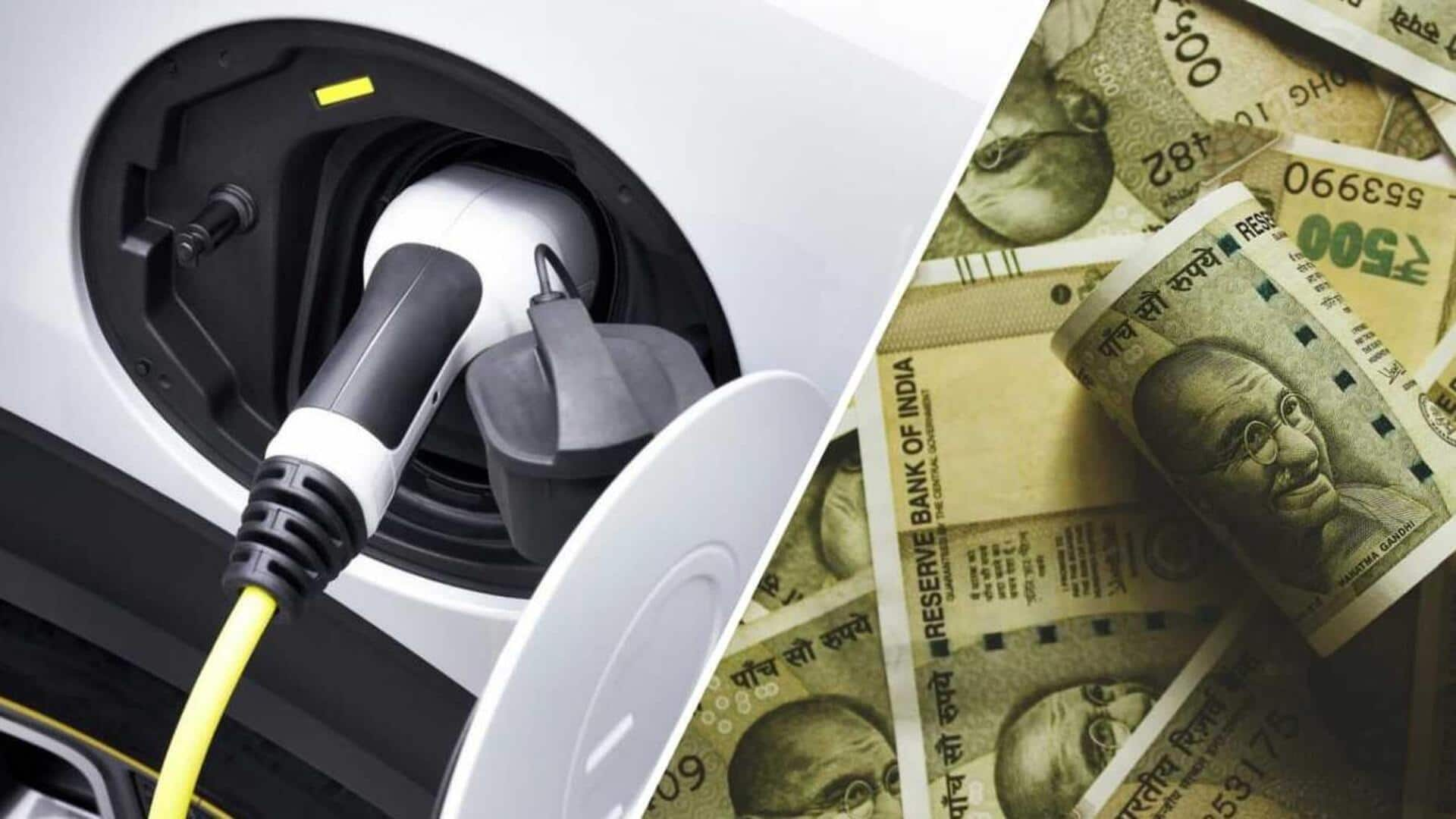
Indian EV sector funding declines by over 27% in 2024
What's the story
India's electric vehicle (EV) sector has witnessed a sharp decline in funding, with investments falling from $934 million in 2022 to $586 million in 2024, according to data from Venture Intelligence.
In comparison to last year, the funding is down 27% from $808 million in 2023. The decline is due to policy changes and a slowdown in sales growth.
Regulatory impact
Policy shifts and subsidy cuts impact OEMs
The PM-E Drive Scheme, launched in October, seeks to slowly wean the industry off subsidies.
Under the scheme, subsidies for electric two-wheelers are determined by battery capacity, set at ₹5,000 per kilowatt-hour (kWh) in the first year, with a maximum of ₹10,000.
In comparison, the FAME-II scheme initially provided subsidies of ₹15,000 per kWh, covering up to 40% of a vehicle's cost.
This new PM-E Drive Scheme has greatly affected original equipment manufacturers (OEMs), Avendus Capital's Amol Deorukhakar said.
Sales trend
EV sector still growing in India
Ather Energy managed to raise $71 million this year, propelling it into the unicorn club.
Over 1.9 million electric vehicles were sold this year, marking a 24.5% increase from the more than 1.5 million sold last year, though slower than the 50% growth recorded between 2022 and 2023, according to government data.
In the electric two-wheeler category, which witnessed the puclic debut of Ola Electric, total sales climbed to 1.13 million units in 2024, compared to 860,000 units in 2023.
Investor outlook
Investors remain optimistic about India's EV industry
Despite the challenges, investors and stakeholders remain optimistic about India's EV industry.
This optimism stems from the Indian government's target of 30% EV penetration in new vehicle registrations by 2030.
Arpit Agarwal of Blume Ventures noted that subsegments like component manufacturing, charging infrastructure, battery swapping, financing are gaining momentum and offer great opportunities for investment.
Industry growth
Battery swapping and charging infrastructure show promise
Battery swapping is seeing tremendous growth, especially for two-wheelers involved in gig work such as quick commerce and food delivery.
Battery Smart's Pulkit Khurana said they crossed 55 million swaps last month and are doing over 100,000 swaps every day.
Kazam EV Tech, a provider of charging products and services for EVs, has already electrified over 400 million kilometers this year, handling 19GWh of energy for its customers.